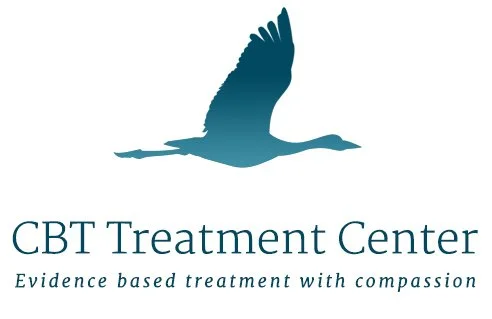
OCD Therapy for Children
Has Your Child’s OCD Taken Over Their Life?
Does your child’s Obsessive-Compulsive Disorder (OCD) dictate their behavior? Has avoidance of activities and situations they fear made their life increasingly small and confining? Do they expect you to participate in their rituals, but you are unsure whether to participate or not?
Your child might describe their OCD as a bully in their brain forcing them to do things they don’t want to do. When a compulsion takes hold, it’s as if they have no choice but to complete it.
You May Feel Powerless To Help Them Overcome Their Fears
For example, your child may have developed rituals and compulsions at bedtime to relieve their anxiety and prevent what they perceive as “bad things” from happening. They may enlist your help arranging stuffed animals, straightening blankets, or closing closet doors until it’s “just right”. Even though you don’t want to encourage the behavior, your child’s fear of the consequences of not engaging in the rituals is too overwhelming. And so, you may participate reluctantly, not knowing what else to do.
Daily compulsions like hand washing might take up hours of your child’s time. Fears surrounding germs, food, or vomiting could make them feel anxious, overwhelmed, and misunderstood. While your reassurance that nothing bad will happen may have calmed them initially, it may no longer be helpful.
You might notice that avoidance is playing a larger role in their life. As sidestepping activities become a common solution to keeping fears at bay, you may be anguished to see your child’s world growing smaller and smaller.
As a parent, all you want is for your child to be free of this torment. You want to know how to help them get their life back. Fortunately, OCD treatment for children partners with parents, teaching them the tools they need to help support their kids.
Obsessive Compulsive Disorder In Children May Sometimes Be Linked To Viral Infections
Although OCD was once considered rare in youth, according to the National Center for Biotechnology Information (NCBI), “an estimated prevalence of Obsessive-Compulsive Disorder in childhood of 0.25–4 percent.”[1] Additionally, there is evidence to suggest that occasionally the onset of OCD symptoms in children may be related to viral infections.
When OCD symptoms appear seemingly out of nowhere (for example, following a strep infection), children may be diagnosed with Pediatric Autoimmune Neuropsychiatric Disorders Associated with Streptococcal Infections (PANDAS).[2] Similarly, Pediatric Acute-onset Neuropsychiatric Syndrome (PANS) is a childhood condition characterized by “the sudden onset of OCD and/or eating restrictions following a bacterial or viral infection, including COVID-19.”[3]
As a parent, this feels scary to navigate. Suddenly your child is a completely different person, as though a switch has flipped in your child's brain.
As Parents, We Face Confusion And Overwhelm Looking For Solutions
Whether genetic or viral in its origins, as parents, we can’t bear watching our children suffer. We hope that by addressing it early, they will have a better chance of overcoming OCD so that their symptoms won’t affect them as dramatically as adults.
Unfortunately, the path forward for getting help isn’t always clear. OCD is still misunderstood in our culture. The term “OCD” is often used heedlessly as an adjective when someone talks about avoiding germs, washing their hands a lot, or meticulously organizing everything in rainbow order. However, this casual depiction of OCD diminishes the devastating consequences it has on our children and, indirectly, their families.
Without support, your child can’t change their behavior. As their parent, you have the opportunity to get them the help they need to manage OCD, so it’s no longer negatively impacting their life. Luckily, working with a pediatric OCD therapist provides you with the support you need to help your child make progress.
Treatment Helps Children Understand And Manage OCD
When your child is wrestling with an intrusive thought, no amount of reassurance will help them face their fears. You need tangible strategies to help them manage their compulsions, rituals, and habits. Therapy is a collaborative process where we work together to help reduce OCD symptoms.
OCD treatment tailored for children helps them understand what’s going on in their brain, which allows OCD symptoms to live and thrive. With this knowledge, your child can begin to master overcoming their urges as well as make peace with the uncomfortable feelings they associate with by not engaging in OCD-based behavior. Even though OCD tendencies never disappear completely, your child can learn how to diminish the impact of their symptoms before they become a bigger issue.
When working with kids, teens, and even young adults living at home, parents and families will play an active role in treatment. There are often accommodations parents make that help maintain their children’s OCD symptoms. I aim to show you how you can best support your child in reducing these behaviors.
What To Expect In Sessions
The first few sessions will be aimed at understanding the nature of your child’s OCD. We will examine how it interferes with their daily functioning as well as what the feared consequences are of not giving in to a compulsion. Parents and children will participate in sessions together as well as individually. After we understand the issues, treatment will be tailored to your child’s needs while ensuring that our treatment goals align with your life values.
ERP Therapy for OCD
Cognitive Behavior Therapy (CBT) combined with Exposure and Response Prevention (ERP) is the treatment of choice for OCD. With ERP, we will face your child’s fears gently and collaboratively, which helps them retrain their brain to break out of the fear-avoidance cycle that OCD perpetuates. Once we identify the core fear, we can provide ways of dealing with the anxiety, so it becomes less overwhelming. Although the idea of facing their fears head-on with exposure may seem scary to them, ERP is gold-standard therapy proven to be an effective treatment for OCD.[4]
After completing ERP, your child will know what to do when OCD is starting to infiltrate their mind and how to respond to future OCD flare-ups. And you will know what to do—and what not to do—to support your child. With treatment and support, your child can rediscover a life free of rituals and compulsion that can be full and enjoyable once again.
But You May Wonder Whether OCD Treatment For Children Is Right For Your Family…
My child will be too afraid to describe their OCD and intrusive thoughts to a pediatric therapist.
Some forms of OCD subtypes create intrusive thoughts that can make your child feel so out of control that they no longer feel like themselves. However, it’s important they understand that they are not their thoughts. As a therapist who specializes in pediatric OCD and related symptoms in children, I realize that expressing their fears aloud could be the hardest part of treatment for them. But I can assure you, nothing they tell me will surprise me. Throughout the years I have developed some creative ways to help kids open up.
Conquering Obsessive-Compulsive Disorder with therapy seems too difficult to do.
Facing fears is a hard thing to do. The journey to the summit can seem difficult when your child feels like they’re traveling alone. But they don’t have to do it by themselves. As someone who works with families every day, I trust the process and have witnessed it help countless kids just like yours. We will never go further than they are ready to go. And as their parent, you can certainly trust and lean on me for support.
The last specialist we went to for OCD treatment didn’t help us.
It’s common for families to attend therapy for OCD with a therapist who may not be familiar with the most effective treatments, such as ERP. Unfortunately, your child may only experience short-term relief if their therapist isn’t a specialist in treating OCD in children. CBT and ERP have both been shown to be effective in treating OCD. , Most of my clients will notice a distinct difference in the style of OCD treatment I incorporate from the onset.

The Tools To Manage OCD Exist. Time To Fill Up Your Toolbox.
You don’t have to feel helpless anymore. Together we can help your child manage their symptoms, so they’re no longer controlling their life. To schedule a free consultation to learn more about OCD treatment for children, please contact us.
https://www.ncbi.nlm.nih.gov/
https://pubmed.ncbi.nlm.nih.gov/24953744/#:
https://www.helpguide.org/articles/anxiety/pans-and-pandas.htm#:
Foa, E. B., & Kozak, M. J. (1996). Psychological treatment for obsessive-compulsive disorder. In M. R. Mavissakalian & R. F. Prien (Eds.), Long-term treatments of anxiety disorders (pp. 285–309). American Psychiatric Association.
https://www.nimh.nih.gov/health/topics/obsessive-compulsive-disorder-ocd#:~:text=Psychotherapy%20can%20be%20an%20effective%20treatment%20for%20adults,be%20as%20effective%20as%20medication%20for%20many%20individuals.
Foa, E. B., & Kozak, M. J. (1996). Psychological treatment for obsessive-compulsive disorder. In M.R. Mavissakalian & R. F. Prien (Eds.), Long-term treatments of anxiety disorders(pp. 285–309).American Psychiatric Association.




